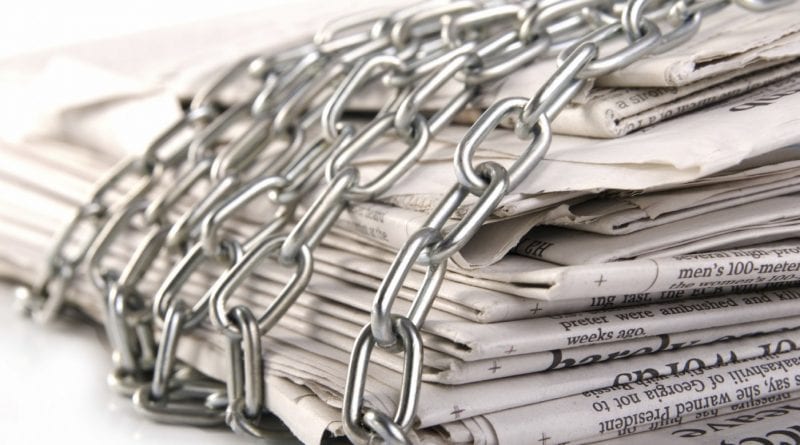Uzbekistan: changes in legislation discredit freedom of expression
Examples of judicial arbitrariness refute the claims of the authorities about the coming “decriminalization” of articles for libel, in fact, even more threatening civic activism after the recent legislative initiatives.
On December 17, the Administrative court of Chilanzar region found a resident of Tashkent, Valentina Ermetova, guilty of libel and ordered to pay a fine equivalent to $ 64. According to the judge, on November 25 during the video filming of the report of the online newspaper “News of Uzbekistan” about the problem of their house, she allegedly told a lie that an insufferable smell was coming from the neighbors’ apartment at night. Residents of the house confirm the cause of the stench due to the long cooking of offal for sale.
After being made public, the neighbor threatened to kill Valentina. The local district police officer turned the case so that the house committee slandered the merchants. On December 11, employees of the sanitary and epidemiological station “didn’t find the terrible smell and entrails of animals in this apartment”. The court was guided by the testimony of the specialists of the sanitary and epidemiological station when making the decision.
The collective complaints of tenants, as well as violations of the rules for the maintenance and use of residential premises, were not taken into account, which entails the imposition of a monetary fine. The court regarded the encroachment on Valentina’s life as petty hooliganism and punished the offender also for $ 64.
Such verdicts are not uncommon for the judicial system in Uzbekistan. The moderator of the feminist Telegram channel @SukutSaqlama, Nigora Adizova, was also threatened with murder by her neighbor. The reason for the promise of reprisals was the principled position of Nigora in defending her rights to the safety of her loved ones and the observance of cleanliness in a residential building.
The reaction of the security officials turned out to be unusually mild. They, despite the previously issued protection order, didn’t find anything frightening in the violator’s behavior because “the threats were not at Nigora’s home” and also fined $ 60.
On November 27 this year, more than 200 residents of Buyuk Turon makhalla in the city of Karshi protested against the cutting down of an orchard, which they had looked after for decades. To strengthen their argumentation in communication with officials, 20 women brought bottles of gasoline, and the men didn’t stand in the way. This was reported by the Uzbek service of Radio Liberty. On December 12, the authorities decided to take revenge. They detained only 44-year-old single mother Mashkhura Sadykova and sentenced her to 10 days of administrative arrest and a fine of $ 40. According to her, she is threatened with “treatment” in a psychiatric hospital if she doesn’t stop complaining to journalists.
“The court didn’t take into account my words that my disabled mother and two children stayed at home,” Mashkhura said. “Ten men and I were present at the trial. I was accused of allegedly spreading a message about the protest action on social networks. I asked the court to watch the video and make sure that during the protest I didn’t even have a phone in my hands. I said in court that the journalists of Ozodlik really found my phone number and I gave them an interview, but I didn’t disseminate information on social networks. Despite the fact that the city hokimiyat filed a lawsuit against me, none of the representatives of the hokimiyat came to the hearing.”
On December 25, the President of Uzbekistan Shavkat Mirziyoev signed the law. ACCA previously wrote about its draft. The new legal norm abolishes punishment in the form of imprisonment for libel and insult, but correctional labor from two to three years or restriction of freedom up to one year are introduced into practice.
In the updated article 139 of the Criminal Code, defamation in public space is punishable by a fine of $ 4248 to $ 8496 or compulsory community service from 300 to 360 hours. Previously, the maximum sanction for this act was imprisonment for up to one year. Changes in laws imply an ambiguous interpretation of investigations by law enforcement agencies in the interests of government structures and stakeholders.
“The new legislation will not immediately turn into repression for journalism and civil society,” sums up the ACCA expert. “Since December 26, the media sphere and users are threatened with another sword of Damocles of selective justice, together with pressure from the public sector and business, censorship and self-censorship. At the right time, it put itself on the map.”




